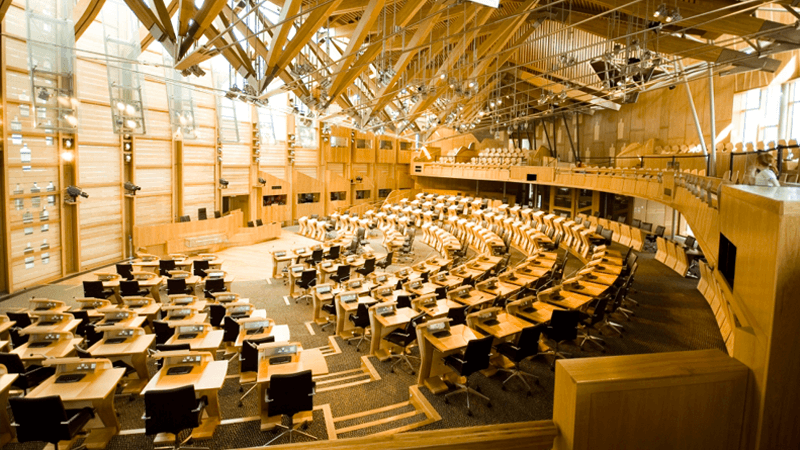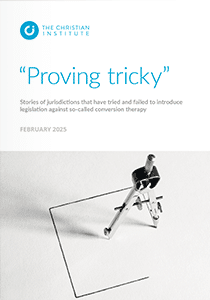The Christian Institute has warned the Scottish Parliament that it faces legal action if it passes ill-thought-out legislation banning so-called conversion therapy.
In a letter sent to Holyrood’s Presiding Officer Alison Johnstone, the Institute questioned the impartiality of the recent investigation Equalities, Human Rights and Civil Justice Committee (EHRCJ) into a petition calling for a ban.
If MSPs support an activist-inspired ban, as outlined in the petition co-ordinated by the End Conversion Therapy Scotland (ECTS) campaign group, the CI warned that prayer, preaching, parenting and pastoral care that uphold biblical sexual ethics would all be put at risk.
Biased
The Institute’s Deputy Director for Public Affairs, Simon Calvert, told Johnstone: “that the majority of MSPs on the Committee are too close to the ECTS campaign for the public to have confidence in the outcome of their deliberations in this sensitive area of policy-making”.
He pointed out that seven of the EHRCJ’s ten members had signed an ECTS campaign group pledge in the run-up to the May 2021 election, and that some had tweeted in support of the activists.
He asked: “How can the Committee be expected to exercise impartial, critical judgement when most of its members have given assurances directly to the campaign group whose claims they are scrutinising and have promised to enact the very policies being sought?”
‘Allies’
Mr Calvert also raised concerns about the way in which evidence on the petition had been gathered by the Committee.
He explained that of the eight evidence sessions held by the EHRCJ, only one heard from “groups who question how far the ban should go”.
In contrast, the others were given over to “advocates” who supported the petition “without reservation” and “felt very much like conversations between friends and allies”.
Named Person scheme
Mr Calvert concluded: “The public expects impartial scrutiny. Instead, Committee members have made promises to campaign groups and taken evidence disproportionately from those supporting the petition.”
He reminded the Presiding Officer: “The Christian Institute was involved in the successful legal challenge to the Named Person legislation where Parliament failed to properly scrutinise proposals. Inadequate scrutiny by Parliament in this case may again result in human rights challenges being brought against any resulting legislation.”
A Scottish Parliament spokesman said: “Any correspondence received by the Presiding Officer will be given proper consideration and responded to accordingly.”
On 28 July 2016, in the case of The Christian Institute and others v The Lord Advocate (Scotland) five UK Supreme Court judges unanimously struck down the central provisions of the Named Person scheme.
Legal actions
In May last year, the Institute wrote to both the UK Government and the Northern Ireland Executive pledging to judicially review their planned ‘conversion therapy’ bans if, as activists want, they outlaw ‘the wrong kind of prayer’.
It instructed lawyers to prepare for legal action in the event that either government caves to demands to outlaw prayer as part of a ban on ‘conversion therapy’.
Why the proposed conversion therapy ban is potentially dangerous for the work of churches
‘Activists’ demands on conversion therapy could criminalise the Gospel’
Al Mohler: Rising spectre of ‘conversion therapy’ bans threatens Gospel freedom



